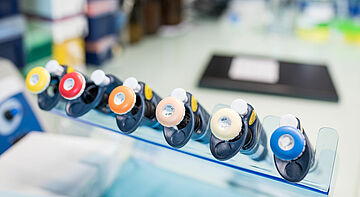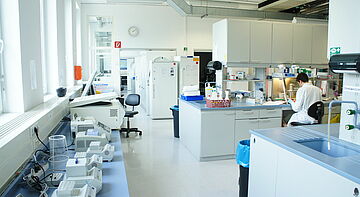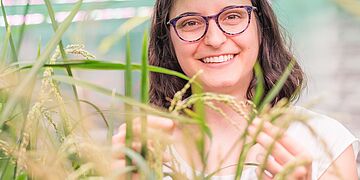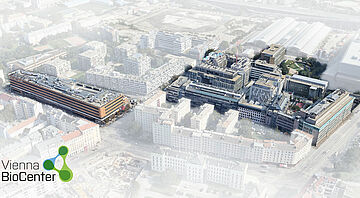Toggle Navigation
- Research
 Back
Back- Research at Vienna BioCenter
- Research Entities
- Research AreasResearch AreasOpen SubmenuBack
- Anthropogenic Evolution
- Biochemistry, Biophysics, Structure
- Cell and Chromosome Biology
- Cognitive and Behavioral Biology
- Computational Biology, Genomes and Evolution
- Disease Mechanisms, Immunology, Pathogens
- Gene Regulation, RNA, Epigenetics
- Microbiology and Environmental Systems Science
- Neurobiology
- Plant Sciences
- Stem Cells, Development, Regeneration
- Research Groups
- Key DiscoveriesKey DiscoveriesOpen Submenu
- Recent Research Highlights
- VBCFBack
- Companies
 Back
Back- Companies at Vienna BioCenter
- Biotech CompaniesBiotech CompaniesOpen SubmenuBack
- a:head
- Ablevia Biotech
- ACCANIS Biotech
- ADvantage Therapeutics
- Affiris CVD GmbH
- aitiologic GmbH
- Akribes
- Austrianni
- BioNTech R&D Austria
- Biosynth
- Bird-C
- bit.bio discovery GmbH
- CALYXHA Biotechnologies
- ChanPharm
- Eveliqure
- Evercyte
- Exscientia
- G.ST Antivirals
- HD Immune
- HeartBeat.bio AG
- HOOKIPA Pharma Inc.
- invIOs
- JLP Health
- Lexogen
- Miti Biosystems
- MyeloPro Diagnostics and Research GmbH
- Myllia Biotechnology
- OncoOne
- Pregenerate
- proxygen GmbH
- QUANTRO Therapeutics
- SCARLETRED
- TAmiRNA
- Thermo Fisher Scientific
- THT Biomaterials GmbH
- Tridem Bioscience
- Valneva
- X4 Pharmaceuticals
- YGION Biomedical GmbH
- Service CompaniesService CompaniesOpen Submenu
- Business IncubatorsBusiness IncubatorsOpen Submenu
- Education
- Career
- About













